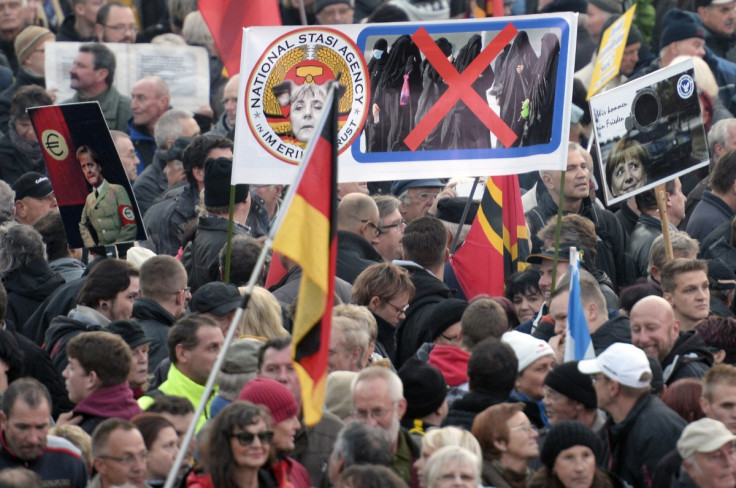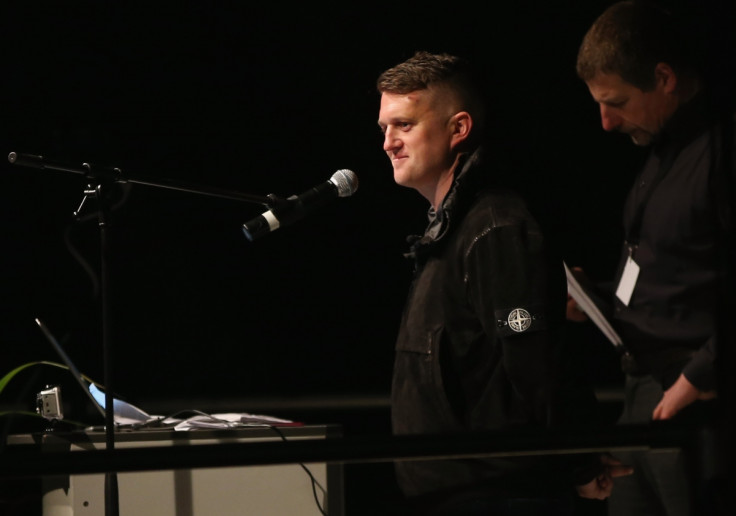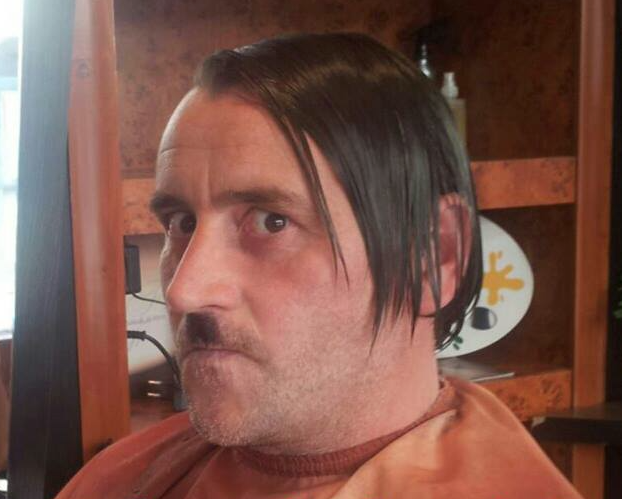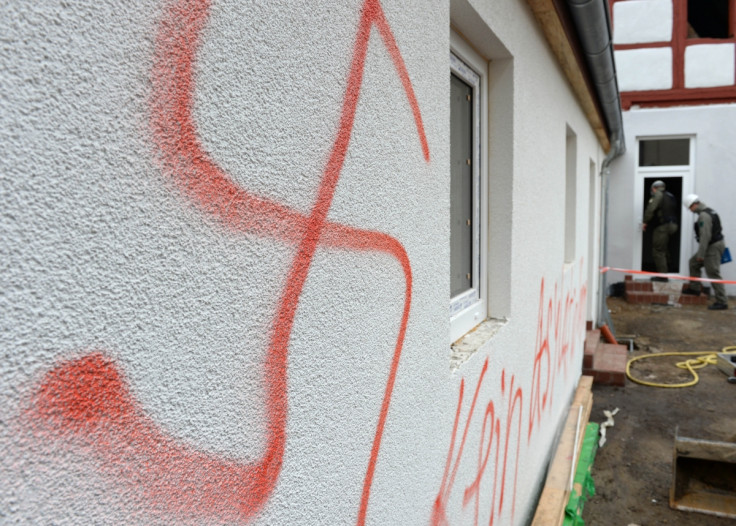Migrant crisis: German far-right Pegida group grows in strength on first anniversary
Far right group capitalises on growing opposition to migration.

It has been a year since anti-immigrant group Pegida was founded in Dresden, eastern Germany. An acronym for Patriotic Europeans Against the Islamisation of the Occident, Pegida has in the past fortnight attracted tens of thousands to rallies marking the anniversary and reaffirming their opposition to immigration and the politicians they accuse of selling them out.
Amid a disturbing resurgence of the German far right, More than 10,000 took to the streets in support of the group on 26 October and the previous week. Notorious UK far-right activist Tommy Robinson addressed crowds bearing aloft German flags and placards with anti-immigration and anti-Islam slogans.

The show of strength marks a return for the group, which months ago seemed in terminal decline after its founder, Lutz Bachmann, was pictured with a Hitler moustache. His resignation sparked fierce internal disputes and by June attendance at rallies had dwindled to a few hundred.

Germany's immigration crisis has sparked a resurgence for the group, which has capitalised on growing anxieties about how the country is going to cope with the refugees and immigrants arriving in their thousands every day.
More than one million immigrants are expected to arrive in the country before the end of 2015, and towns and cities across Germany are reeling from the impact. In response, the group has called for the Schengen Agreement on the free movement of people in Europe to be suspended, and the intake of refugees to the country to be frozen.
The group's rhetoric comes with the German public increasingly turning against Chancellor Angela Merkel's open door immigration policy, and declaration that refugees to the country are welcome. In a recent poll, 51% of Germans – up 13% on the previous month – said they are "scared" by the number of immigrants arriving in the country.
The group's rallies have grown in intensity, with a man recently charged by police after bringing a gallows "reserved" for Merkel to a rally, and posters held aloft by supporters portraying the chancellor as a Nazi dictator, with the euro symbol in place of the swastika on the armband. Reinstated leader Bachmann was charged by police in October after referring to immigrants as "filth" and "cattle" on his Facebook page.
Dr Ralf Melzer, a researcher on the far right at the Friedrich-Ebert Stiftung academy in Berlin, said the movement is a manifestation of deeper feelings of resentment and powerlessness.
He told IBTimes UK the immigration crisis is "fuel into the fire" but the movement is an expression of a "general hatred and hostile attitude to democratic institutions and what is seen to be a political elite and media establishment". As an expression of general rage he said it is "not targeted, it is not serious, it is just blaming other people"
He added: "I think this is a reaction to global developments. To the implications of globalisation, to feelings of being detached from developments." In such a situation, Melzer said: "You have figures like Mr Bachmann or even politicians who give fuel into the fire and give simple answers to complex questions."
Throughout the country, there have been violent attacks on immigrants as well as on politicians regarded as supporting immigration. In October alone, police uncovered a plot to commit explosives attacks against immigrant shelters in the Bavarian town of Bamberg, and the prospective mayor of Cologne was stabbed by far-right extremists. Authorities have recorded 505 attacks on immigrant shelters so far in 2015.

Merkel warned the group's leaders have "hatred in their hearts". Others link the group's rhetoric to the increasing anti-immigrant violence. "There's no more question about whether those who organise [the Pegida protests] are hardcore right-wing extremists," said Interior Minister Thomas de Maizière on national television. "They condemn all asylum seekers as criminals, and all politicians as traitors."
It is not just grass roots groups such as Pegida who are seeking to capitalise on the crisis. The populist Alternative Fur Deutschland party has seen membership soar at the rate of 40 new members a day, party leader Frauke Petry claimed in a recent interview, as the party steps up its anti-immigrant rhetoric.
The immigration crisis and its political fallout is one of the biggest challenges Germany has faced since the war, and anti-Pegida activists and political moderates of all stripes are asking how the tide of support for the group can be stemmed.
For Melzer, it is essential that politicians uphold the traditions of tolerance that are central to democracy. "This a challenge for the whole of society: for civil society, for media, for politicians," he said.
He called for politicians not to seek to seek short-term gains at the ballot box by parroting the slogans of the far right but stand against attempts to "infiltrate the mainstream with right-wing ideologies, and this begins much earlier than [a situation in which there is] violent behaviour or Neo Nazis in parliament."
He added: "The earlier we are aware that language has a direct impact on behaviour and the more we keep our consensus as a democratic society and make clear that it is not acceptable to humiliate people or devalue people the better."
© Copyright IBTimes 2025. All rights reserved.





















